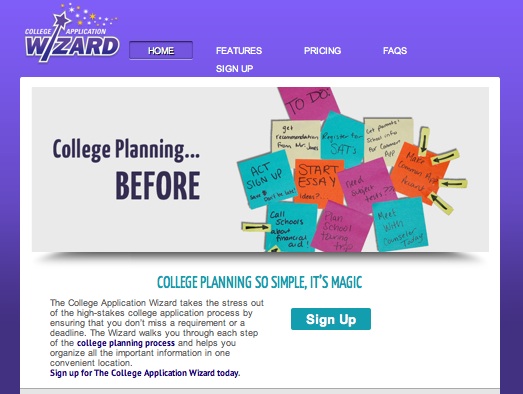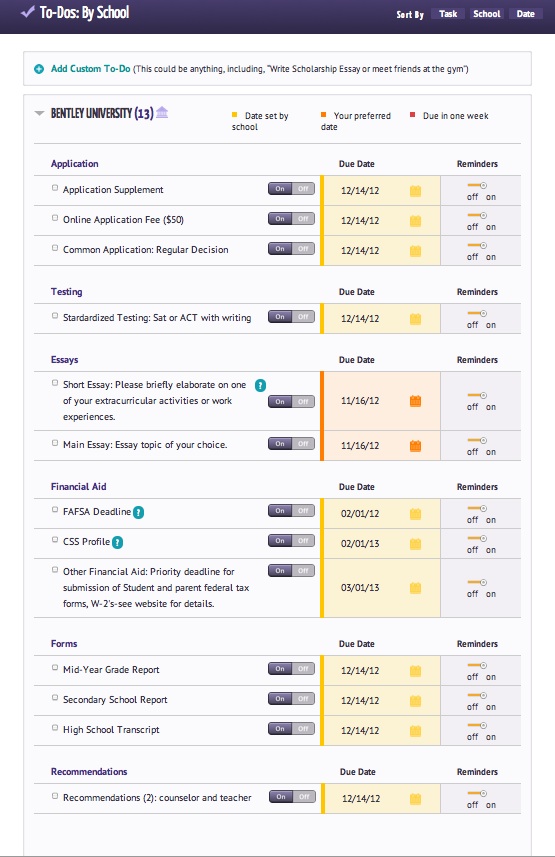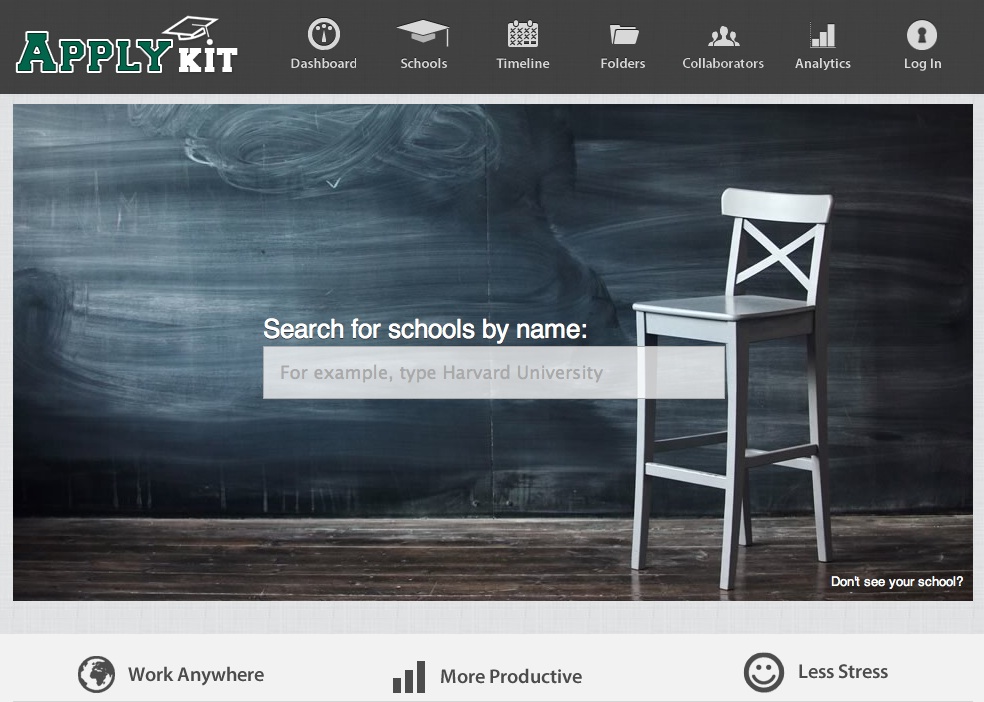Today’s guest post is from Ryan Hickey, the Managing Editor of Peterson’s & EssayEdge and is an expert in many aspects of college, graduate, and professional admissions.
______________________________________________________________________
 It may seem like everyone you know is boasting about how their child effortlessly juggles advanced classes with guitar lessons, volunteering at the senior home, and learning Cantonese. It’s enough to give you a complex about whether or not your teen can even compete when applying for colleges.
It may seem like everyone you know is boasting about how their child effortlessly juggles advanced classes with guitar lessons, volunteering at the senior home, and learning Cantonese. It’s enough to give you a complex about whether or not your teen can even compete when applying for colleges.
Well, fear not. Here are five things you can do to ensure your own student’s trajectory is on the fast track toward college acceptance while preparing your teen for college.
1. It’s okay to put all your eggs in one or two baskets.
The Rushmore syndrome of encouraging your child to join every club in sight results in a student that seems like a jack of all trades and master of none. Admissions committees are no longer fooled by a student who suddenly seems to be interested in 30 different projects the summer before junior year. Instead, focus on your child’s specific interest and let them actually achieve a level of proficiency. It is much more important to demonstrate genuine skill and commitment. Also, it often leads to a solid topic for an application essay.
2. Leadership is better than variety.
On a similar note, by applying meaningfully to just one or two extracurricular projects, a student can begin to build a level of responsibility. This kind of maturity is something colleges particularly look for in applicants.
3. Looking for something to add fast? Volunteer!
Community service is not only a great way to help others, it can help your teen too. If you feel like something is missing in your child’s transcript, volunteering can be a low-level commitment addition. Also, it is generally relatively easy to gain a leadership position quickly in a volunteer setting just by showing some initiative.
4. What are you going to do with your life?
Specific career goals post-graduation can differentiate your child from other applicants. Make sure you have a conversation about this and keep in mind that this goal is not something that goes on any permanent record. The larger idea of presenting oneself as forward-thinking in an application gives your teen the desirable aura of confidence in their direction. Maybe your daughter wants to be a veterinarian—check to see if it’s possible for her to shadow a local vet. Again, it’s not imperative that he or she actually adheres to this once they get into college, put admissions committees like to see that kind of drive.
5. Be true to your school
A great way to stand out in your applications is to know exactly what you want in a university. One important metric that colleges use to compare to each other is called “yield ratio”—that’s the number of students that accept admission after it is offered. Schools like to feel wanted, and therefore one of the best ways to prepare your teen is to help identify exactly what he or she is looking for in a school and then narrow down choices to ideal places. This requires a little research and some tough decisions. It also means trying to make an official visit, if possible.
Don’t feel tempted to nudge your student into another program just because it might look good on a transcript. Like everything else, honesty is the best policy. It all boils down to specifics. If your child can demonstrate commitment and leadership in one subject that makes them focus on a future academic goal that can be linked to a particular university program, that is superlative application fodder. No need to know a word of Cantonese.
About the Author
Ryan Hickey is the Managing Editor of Peterson’s & EssayEdge and is an expert in many aspects of college, graduate, and professional admissions. A graduate of Yale University, Ryan has worked in various admissions capacities for nearly a decade, including writing test-prep material for the SAT, AP exams, and TOEFL, editing essays and personal statements, and consulting directly with applicants.











